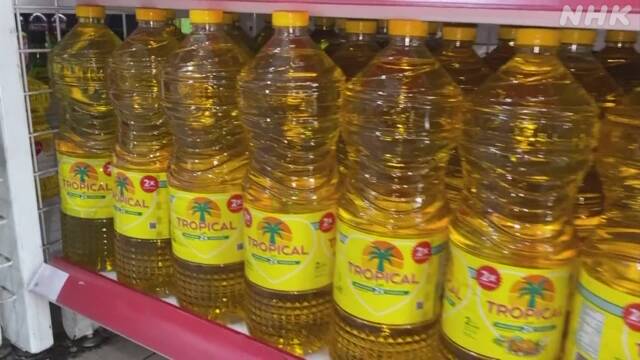Indonesia, the world's largest producer of palm oil, will temporarily ban palm oil exports from the 28th.
As prices soar against the backdrop of the situation in Ukraine, there is concern that international prices will rise further in order to prioritize domestic supply.
The Indonesian government will temporarily ban palm oil exports from the 28th in an attempt to stabilize the domestic supply of palm oil and keep prices down.
Indonesia is the largest producer of palm oil, accounting for nearly 60% of the world's palm oil production, but recently, retail prices for cooking oil have risen by 70% compared to a year ago, and protests have been held.
Behind the rise in prices is the growing demand for palm oil as an alternative due to concerns that the supply of sunflower oil, which is mainly produced in Ukraine and Russia, will be disrupted.
The Indonesian government is currently saying that it will continue to embargo until the average price of cooking oil of about 17,000 rupiah per liter drops to 14,000 rupiah.
Palm oil is used in a variety of raw materials such as food and cosmetics, so a prolonged embargo in Indonesia could lead to higher prices for a wide range of products.
JETRO = Wataru Ueno, a wide-area researcher at the Jakarta Office of the Japan External Trade Organization, said, "Of the 630,000 tons of palm oil imported by Japan last year, 220,000 tons are from Indonesia. I have sex. "

